News-wunderkind Nick D’Aloisio: „Running can be fun!“
Quite a lineup at the DLD-conference in Munich, Germany: Jimmy Wales, Arianna Huffington, Jeff Jarvis. But one teenager stole everyone’s spotlight: Nick D’Aloisio, 18, Self-Made-Millionaire, who is about to reinvent journalism for Yahoo! (German here).
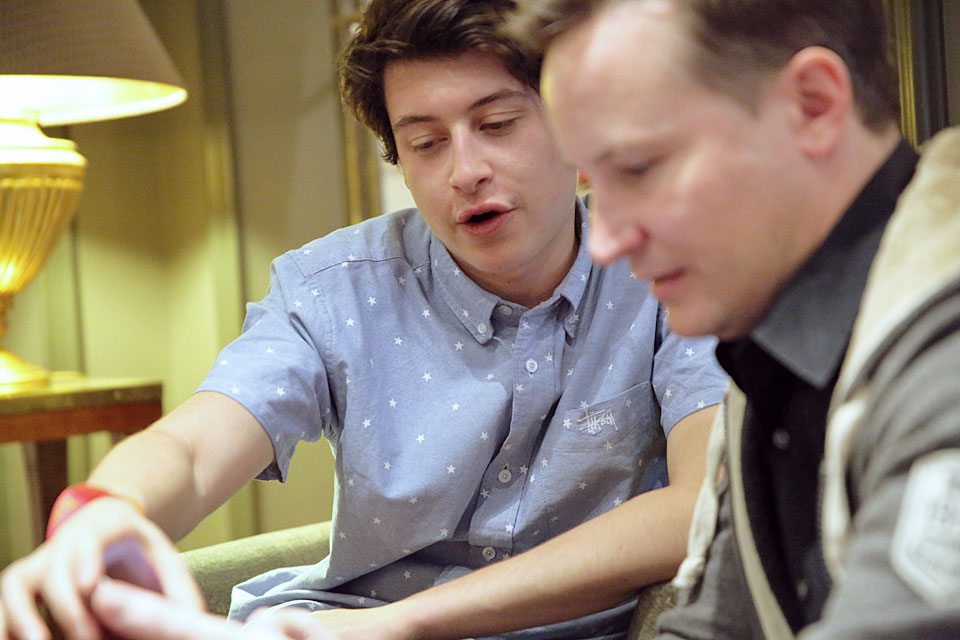
![]() German text version
German text version
If there is one company, that I’m curious about these days, it’s YAHOO!. Like no other web-company, Yahoo has radically shifted from desktop towards mobile and content-creation. Acquisitions, strategic partnerships and layoffs were producing many headlines over the past months.
The Yahoo-story is one giant roller-coaster-ride. Unfortunately, most of the time down the hill (see Paul Graham Yahoo-history). 2002 Yahoo planned on buying Google. Only five years later, Yahoo itself was about to be bought by Microsoft. Ultimately, the deal never happened. Yahoo’s stock plunged.
Sometimes they come back
Is YAHOO! capable of a comeback? Is Marissa Mayer capable to do, what Steve Jobs has done for Apple? Ever since she became CEO, Mayer has made bold choices: She hired TV-personality Katie Coruic as Yahoo’s „World Anchor“. Tech-columnist David Pogue quit his job at the New York Times, to serve Mayer as „Editorial Vice-President“.
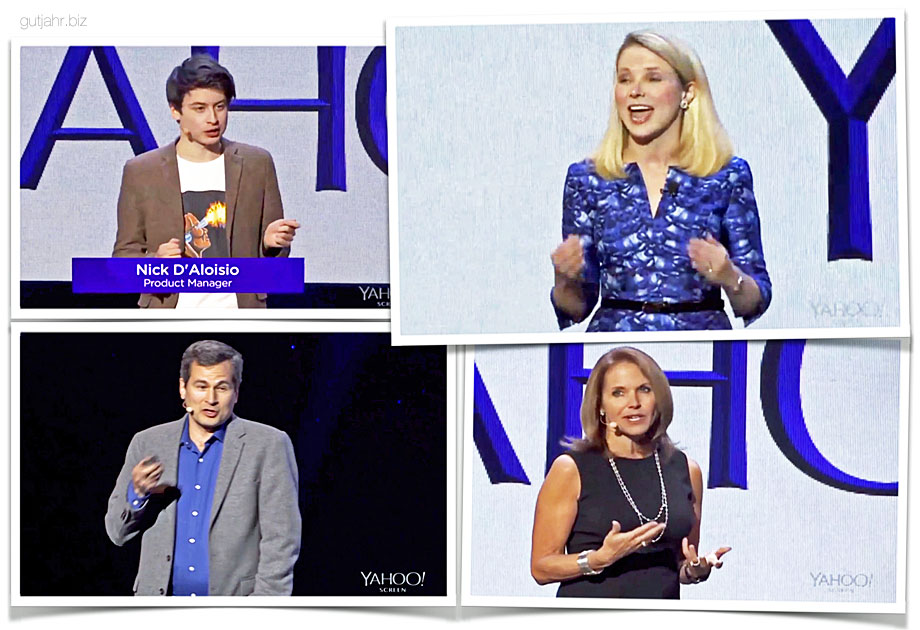
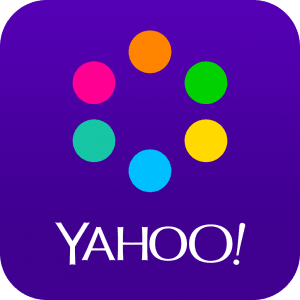 One of the most remarkable acquisitions took place last March. For an estimated sum of 30 million US-Dollars, Yahoo! took over Summly, a news-aggregator built by a then 17year-old-boy from Australia: Nick D’Aloisio. Only a few weeks ago, Marissa Mayer presented at the Consumer Electronics Show in Las Vegas D’Aloisio’s latest creation: Yahoo! News Digest, a news-app, which is built on Summly and gathers twice a day a limited number of news-stories.
One of the most remarkable acquisitions took place last March. For an estimated sum of 30 million US-Dollars, Yahoo! took over Summly, a news-aggregator built by a then 17year-old-boy from Australia: Nick D’Aloisio. Only a few weeks ago, Marissa Mayer presented at the Consumer Electronics Show in Las Vegas D’Aloisio’s latest creation: Yahoo! News Digest, a news-app, which is built on Summly and gathers twice a day a limited number of news-stories.
At the DLD-conference I met with Nick to talk with him about the app, about Yahoo and the future of journalism.
Where does your passion for news come from?
If you abstract it beyond the news business, it’s just information knowledge. That’s what I’m really passionate about. It’s actually text, that I am trying to manipulate, language. I was a student and students read a lot and consume a lot of information. It’s very relevant to what I was doing, simply because of the fact, when I was researching for example with Google to find out about history or whatever, I was thinking about this problem solving, because as a student you have to consume so much information. So when you say it’s about the news industry, it’s a bit odd for people of my age to be interested in that kind of stuff. When you look at it from a different context, the context of text and information, it actually makes a lot of sense.
Why do you limit the news stories within your app to such a small number?
The number for me isn’t important. What’s important is the experience of knowing its finite. When you’re confronted with something infinite, it’s such friction to open the app, because you know it’s just gonna be a mess. What’s nice about finite content you know it’s digestible. You know you’ll be able to go through the headlines in 10 seconds and move on. There’s reliability because you know we’re not gonna add hundreds of stories. You know what to expect when you come to the app. You gonna see 8 or 9 stories and that’s it. So that kind of consistent experience hopefully drives daily habits, which hopefully drives users to Yahoo!. Marrissa has spoken about daily habits being Yahoo!. That’s the pitch for Yahoo!.
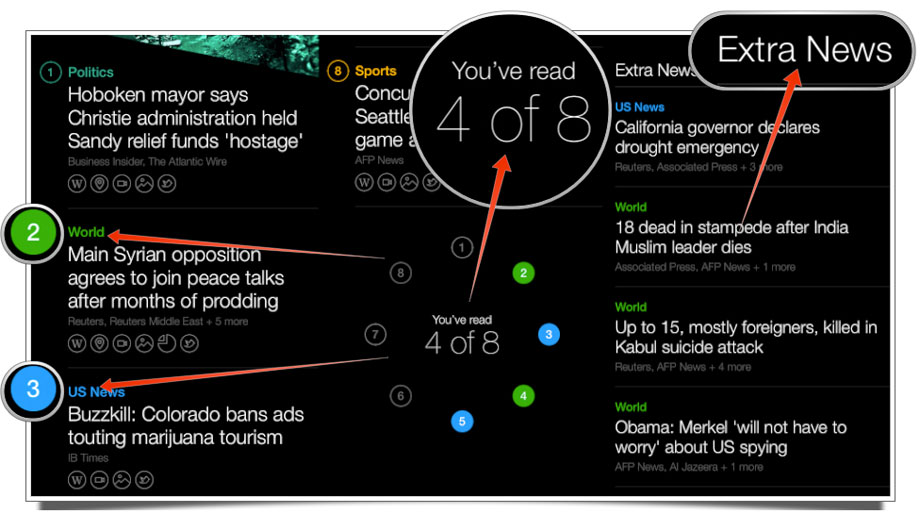
- Twice a day updated, the app regular contains 8-12 articles
Why is your app not fully automated?
It’s hard. Because we want quality to be precise. Hundred percent, not 99 percent. You can’t get reliability in the product because people wouldn’t trust you. They need to do fact checking with all kinds of sources, that’s kind of messy. We are also fortunate in being finite. There’s no point artificially constraining ourselves to being a computer. We can have editors to help out. Economically it makes sense to have people involved. We want humans to curate and to select the stories, that’s difficult. However, the actual synthesis of the content and creating the items in the summary, that can be done algorithmically and that’s based on the Summly-technology that we had.
Why are there only two daily news updates in the app?
It’s a refreshing model, just because of the fact that we looked at usage patterns on the app. People like to read in the morning when they are on their morning commute and in the evening after work when they are coming home. So there were natural peaks anyway. Also I think it’s really hard to make something finite if its constantly updating. It’s only an illusion that its finite but if you stretch it out for all of the updates throughout the day you become very long. You have to have some kind of constraint to allow for finiteness.
What do you think we will see sooner: Computers to learn journalism or journalists to learn how to code?
(laughs) Wow. I think it is the latter. If you solve the first problem, then you solved what Ray Kurzweil called the Singularity, so it’s basically the moment in which human being and computer intelligence is kind of equal. That moment, you have unlocked in our world so many other things, because if a computer can intelligently, not just through smoken mirrors, but genuinely create editorial pieces, just as good as human beings, it’s actually solving the so called turing test. That’s quite unlikely I think to happen in a short time.
How long will there be a need for journalists?
Ithink it’s gonna be symbiotic, so there’s gonna be both parties involved for a long time. If you think about it’s not technology in the traditional sense. Journalists have always used pen and paper, which is a form of technology in the past. The printing press of Gutenberg and you kind of fast forward to television, radio… so journalists always had to utilize technology for hundreds of years. The form has changed, the acceleration has changed. The last time it was not based on technology that was oral storytelling back in the ancient times, but we have evolved from that thousands of years ago. That was the last moment there was no technology.
The app is free. How do you plan on making money with the app?
The focus of this product isn’t to monetize. Clearly there is a lot of opportunities and when the time comes we will. Right know we just want to see what works for the users. We’re experimenting with so many different ideas here, some might not work. There’s no point trying to monetize a product that is unproven. So, first step is prove the product, prove the use case. See engage active users. Then build the advertising on top of that. Don’t let it ruin the experience.
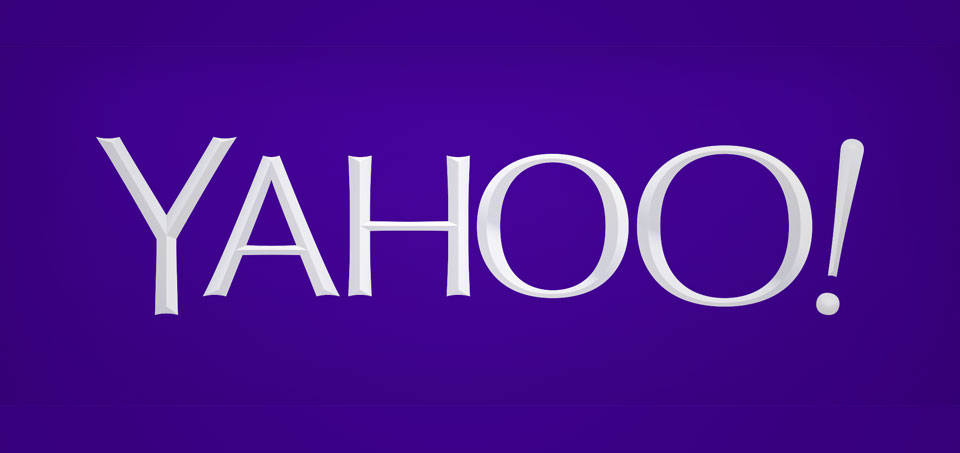
What’s the atmosphere at Yahoo! these days?
It’s very positive. Moral is very high. Clearly Marrissa has inspired a culture within the company, which is really entrepreneurial. There is a lot of creation and creativity, which is very important. There’s a lot more coordination with the mobile team now, it’s a big team, hundreds of employees. And we are all moving towards focusing on creating excellent products. We are not settling for second best in the experiences. The focus is on very high quality awesome stuff. Marrissa joined long time before I did, it’s clear that the people she’s attracting to the company are the best in the industry in term of the talent. It’s a snowball effect. The more good people come because of that.
There have been a lot of layoffs….
My understanding is a lot of people have been brought to the company. The mobile team two years ago was non existent in comparison to today. What I would may be say is that there is an enlightenment in strategy. If there are layoffs, it’s because we want to add more people in other divisions which are more relevant to the company. The mobile team for example is growing very quickly because we realized how important it is to be mobile first. It is exciting to see what is coming out of the company.
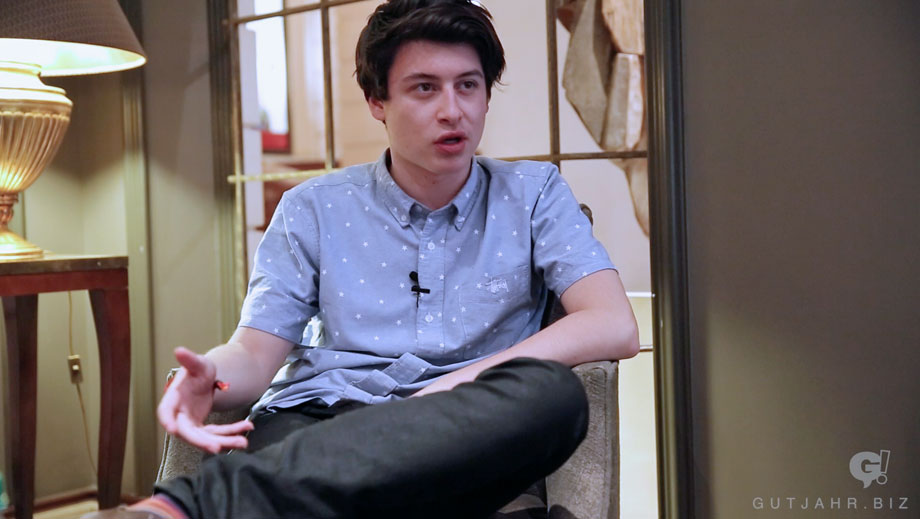
What do talents like Katie Couric, David Pogue and yourself have in common?
There is a cohesiveness because we are all working on the same ideas, which is redefining news and information. It’s our goal. Make the best content experience, whether it would be the digital magazines for the desktop. The personalization for the homepage. I also think it’s good to have people coming from different backgrounds. The differentiation having people from different backgrounds is crucial when you want to innovate. The best innovation comes from interdisciplinary work, when people from all kinds of backgrounds come together.
What is the main mission of Yahoo!?
Clearly it’s to make money. The question is how to facilitate that. The way to facilitate that is to steal users from other services. We want the users. The only way you can do that is by coming up with exceptional good apps and trying things. We need to persuade the people to come back. People might have been on Yahoo! ten years ago but they might have left. We need to create better experiences than the existing ones out there. That’s the goal right now, we are building things. We are excited to try out different things, and when we find a thing that works, scale very quickly to accommodate that.
So there is money in journalism?
Well, that’s the hard question. My answer is I don’t know. My answer is also I don’t worry about that stuff. My job is to build a product. That’s my passion. Clearly making money is important, there is a whole bunch of other teams at Yahoo and in the industry who do that. I’m a technologist at heart, my passion is the algorithm, the design, the product, the use case. What we can make on top of that in terms of making money, that’s the bonus.
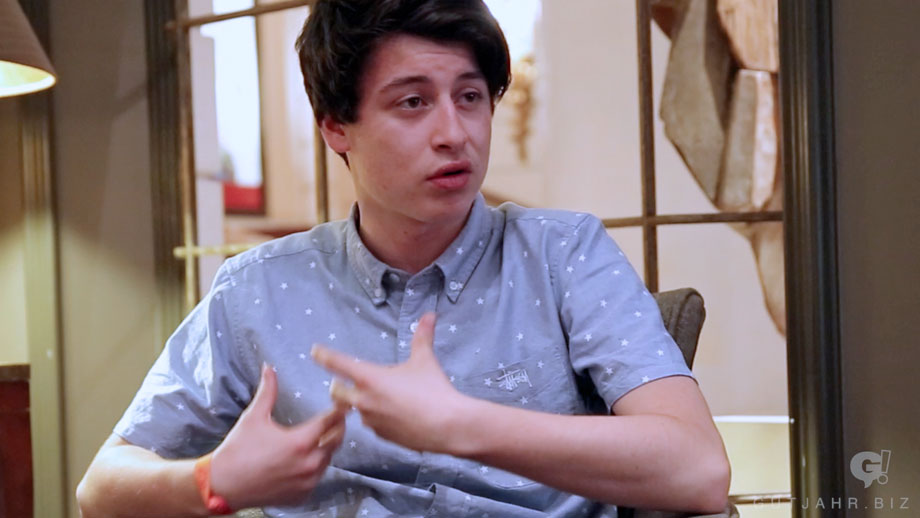
When will the transition from the legacy to the digital media world will be accomplished? When do we hit the ground?
That’s a good way to put it. The answer is: I don’t think we ever will hit the ground. There is always gonna be evolving. Naturally it’s like the acceleration in physics. As things accelerate, in order to catch up with it, you need to be speeding quicker than the things accelerating. But that’s not possible because technology accelerates to an exponential rate.
So we’re doomed?
We’re not doomed, we just have to accept that. Think about wearables, that’s gonna come with a whole new range of things that’s exciting. How does news and information work in an interface when you’re wearing something. There’s always gonna be innovation. It’s exciting.
We’re hamsters.
No I don’t think so. I think we are pioneers. People in the industry today are affecting change more than ever before at a quicker rate. It’s really exciting to watch that, not even to do it, but just to spectate and to see how people are doing that.
So the conclusion is to accept that we as journalists will be running until the end of our days?
May be, if it doesn’t slow down, then that’s just gonna be the new way of things. I don’t know, it’s hard to predict. In the end it all depends on how you look at it: Running can be fun. (laughs) …just don’t get too tired!
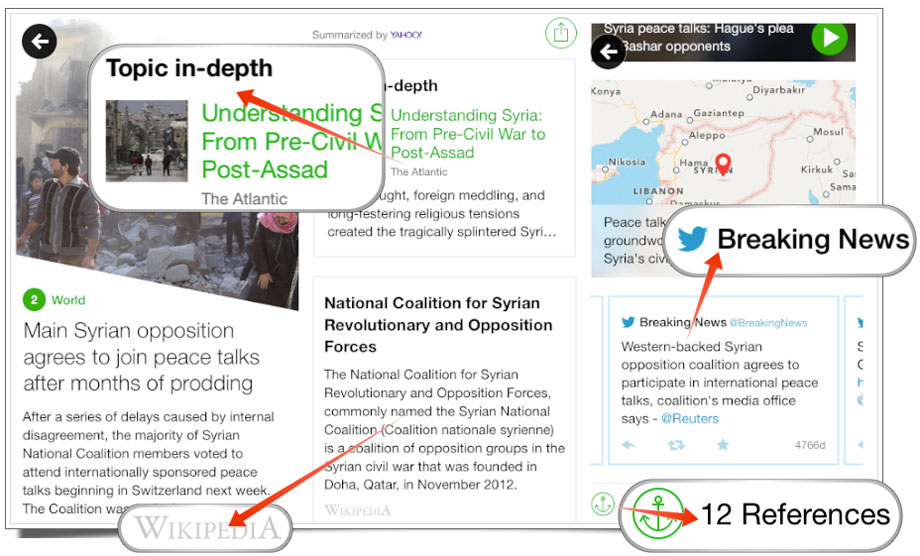
[…] Bei der DLD-Konferenz in München haben sich mal wieder die Stars der Digitalen Welt die Klinke in die Hand gegeben: Jimmy Wales, Arianna Huffington, Jeff Jarvis. Doch ein Teenager aus London hat allen die Show gestohlen: Nick D’Aloisio, 18, Selfmade-Millionär, der für YAHOO! den Journalismus neu erfinden möchte (Engl. version here). […]
[…] Richard Gutjahr über das Wunderkind von Yahoo Nick D´Aloisio und im Interview. Bemerkenswert finde ich, mit welchem Selbstbewusstsein der 18 Jährige auftritt. Zudem hat das was er sagt größten Teils Hand und Fuss. Und die Idee und Umsetzung seiner Nachrichten-App “Yahoo! News Digest” ist auf den ersten Blick simpel wie genial. For the english version, this way please. […]